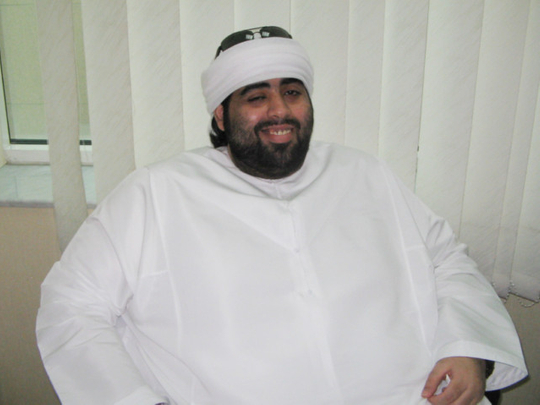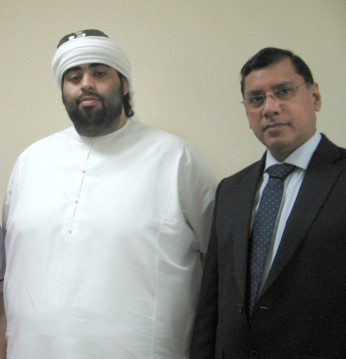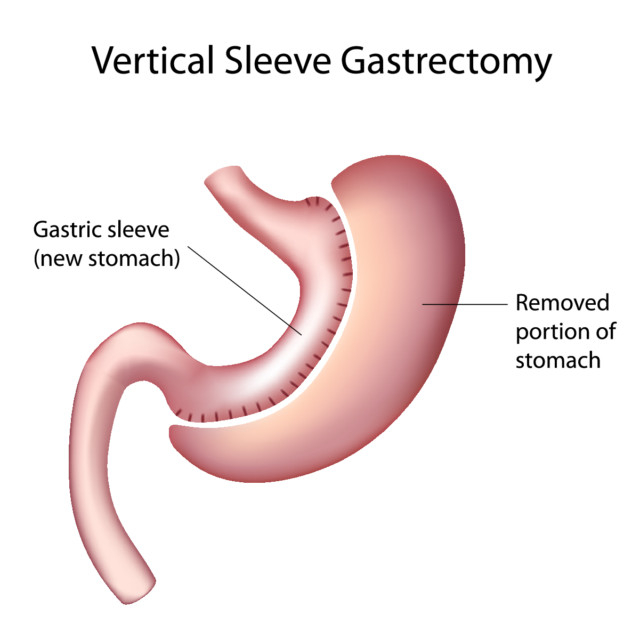
Mohammad Abdullah Al Hosni, a super obese man weighing 179 kilos, had tried for many years to lose weight, but failed each time.
“It was very difficult trying to shed the pounds,” he says, particularly as he loves food and by his own admission, he would eat everything. As a result of being obese, he ended up feeling tired most of the time and finally, decided to opt for bariatric surgery to cut back on the excess kilos.
Dr Girish Juneja, Head of Bariatric Surgery at International Modern Hospital in Dubai, says of Mohammad, “His BMI (Body Mass Index) is 50, which is morbidly obese. His weight had been increasing steadily since childhood.”
Given that Mohammad had tried dieting many times and still could not lose weight, medically, he was a fit candidate for a sleeve gastrectomy, where at least 70 per cent of his stomach is removed by a minimally invasive surgery. This is done by ‘key-hole surgery’ through tiny holes in the abdomen. Such procedures are the last resort for individuals who cannot shed weight by normal methods.
Making the stomach sac smaller not only helps the obese control their food portion size, but it also controls the hunger pangs.
Removing the upper part of the stomach, explains Dr Juneja, also takes away the area where the ‘hunger hormones’ are generally found.
The hunger hormone is called Ghrelin; it triggers your desire to eat high-calorie foods, and these hormone levels increase before meal times and go down after eating food. This hormone is found in the cells lining the main upper part, or fundus, of the stomach.
Post surgery, Mohammad today feels satiated with a lesser amount of food.
The results of the surgery, he says, are amazing. His blood sugar levels are rapidly improving in the first week after surgery. He has lost about 7 kilos already. But his diet now has to carefully monitored and a nutritionist will plan what he should eat, how he should eat and how much.
Excess baggage
Mohammad is just a case in point. A large section of the UAE population is either overweight or obese. The country is considered the fifth fattest nation in the world.
According to a report, the average adult in the UAE consumes about 3,000 calories a day. The recommended daily calorie consumption, however, is 2,500 calories for men and 2,000 calories for women.
As children in the UAE become less physically active, a Ministry of Health official had earlier warned that a larger section of the population will become obese in two years time. About 44 percent of the women could become obese, he also said.
Over the years, the number of obese or overweight adults and children in the UAE has increased steadily. More than 60 percent of Emiratis are presently considered overweight.
The World Health Organisation warns that there will be more than 2.3 billion overweight and 700 million obese people within three years’ time globally.
Being overweight or obese brings with it many complications, says Dr Juneja. “You experience breathlessness when walking, you feel depressed. Generally, the lifespan of the obese is shorter,” he says.
You will be astounded to know that the number of years that are kncoked off the lifespan of morbidly obese people is at least 10 years. Add to that a lack of self-esteem among the heavily overweight which leads to eating disorders and crash dieting (due to depression), and their plight worsens.
Apart from the psychological damage, being heavier than what you should brings on a host of severe afflictions such as diabetes, hypertension and heart problems. It also leads to problems with the back and knees.
Constant supervision
Mohammad is now under constant supervision, and needs to make follow-up visits to the hospital every three months.
With time, “he should be able to lose about 80 per cent of his excess weight,” says Dr Juneja.














